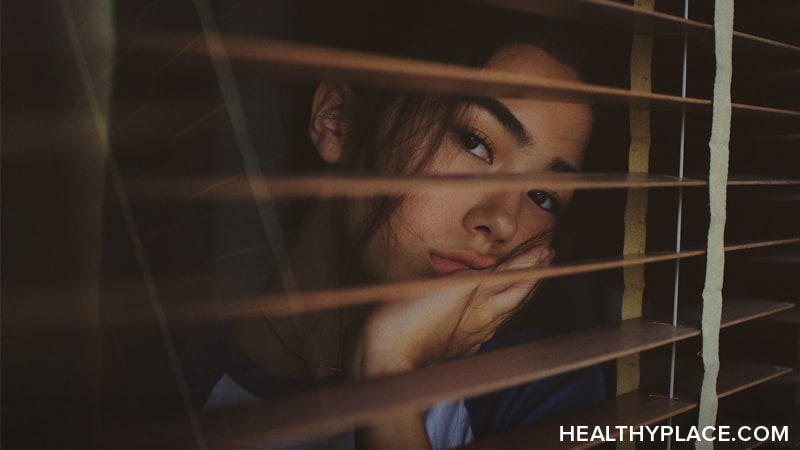Surviving Mental Health Stigma During Isolation

Surviving mental health stigma during isolation sounds like it would be an easy sort of situation. Even with isolation during the COVID-19 outbreak, the general idea of this practice is we're simply staying home and everything is okay, but that's not the case for everyone. Although the word "isolation," especially "self-isolation," gives this sense of being away from harmful things, there are still opportunities for mental health stigma.
What Kind of Mental Health Stigma Can You Face in Isolation?
There are many ways mental health stigma in isolation can manifest and get a foothold. When it comes to isolation, there are three ways I can see it coming to fruition: from those you're isolated with, from the media, and from yourself.
As I said, we have this notion that when we're in self-isolation, that we're away from others, and therefore away from opportunities for stigma. Even if we're not away from others, it's assumed that we live with supportive people. Living with others, however, doesn't automatically mean you have a supportive network of folks around you. Mental health stigma from family can occur as often as it does from complete strangers. I'm fortunate to have an accepting group around me, but I know many don't have that.
Then there's the media. I'd wager being in isolation means a greater likelihood of more media consumption, whether traditional or social media. Social media, in particular, is a breeding ground for mental health stigma when you're in isolation, even when we've carefully curated out feeds. Stigmatizing posts can still slip through and catch us off guard.
And finally, the form of mental health stigma in isolation I struggle with surviving the most: self-stigma. This can happen at really any time, but I personally find being in the confines of the same four walls without the opportunity to go out and take part in other distractions leaves me particularly vulnerable to this.
Tips for Surviving Mental Health Stigma During Isolation Periods
There are many tips for surviving mental health stigma in isolation, so although I'm only sharing a few here, I encourage you to explore others, too.
For stigma coming from those you live with, I recommend carving out a space for yourself in your house—somewhere where you can be you and exist as you need to. I know this can be tricky, but I know for me it's important to have somewhere to just be and not have to interact with others sometimes.
Mental health stigma encountered in the media is a bit simpler to deal with. For this, it's usually best to limit exposure. This is something I practice in general simply because I know how being oversaturated in media can negatively impact me.
This leaves self-stigma. This is one I'm still learning to navigate, but one of the ways I combat it is by finding other ways to distract myself from those thoughts since going out isn't an option right now. Activities such as listening to music, writing, or, a newer one for me, watching livestreams are great for pulling me out of my thoughts. I'm finding the livestreams are fantastic for giving a sense of interaction, even at a distance.
No matter what the reason for the isolation is—whether you're reading this during the COVID-19 outbreak or not—it's still possible to survive mental health stigma during these times. Beyond these tactics, don't forget there are also mental health resources to take advantage of. We can get through this.
What tips do you have for dealing with mental health stigma during isolation? Share them in the comments.
APA Reference
Barton, L.
(2020, April 6). Surviving Mental Health Stigma During Isolation, HealthyPlace. Retrieved
on 2026, January 30 from https://www.healthyplace.com/blogs/survivingmentalhealthstigma/2020/4/surviving-mental-health-stigma-during-isolation
